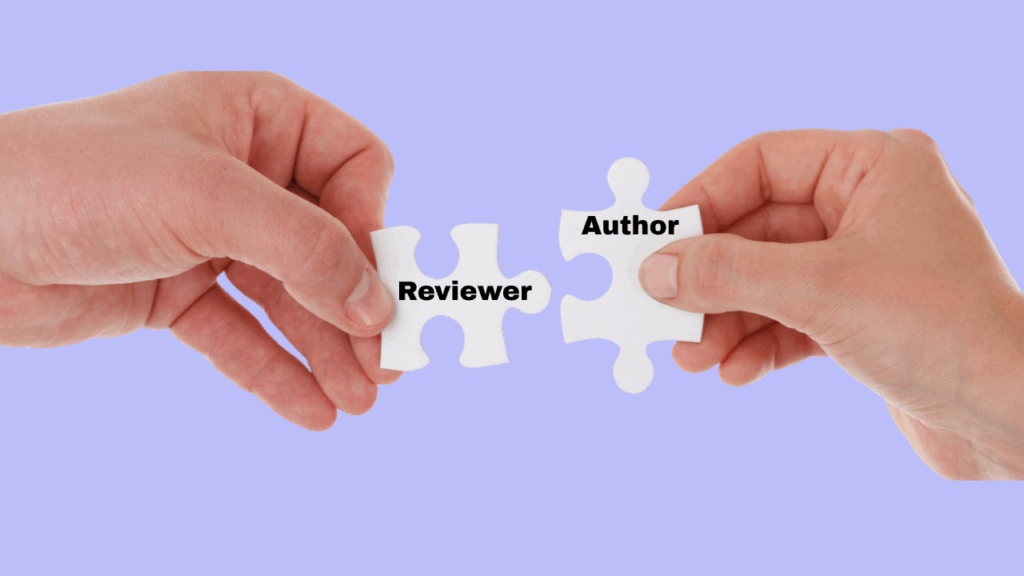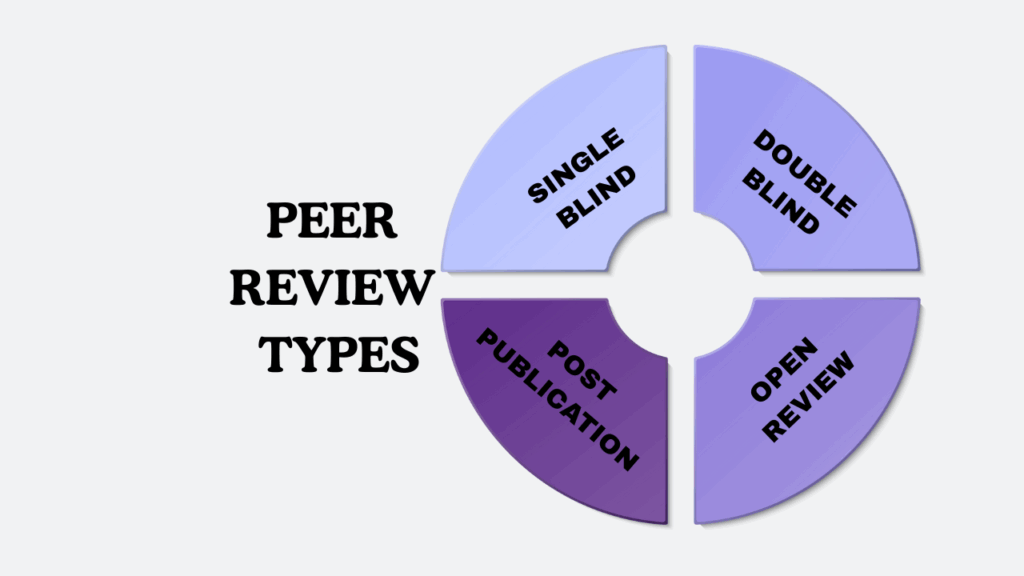Top peer review challenges for authors and how you can solve them!

Editor’s Note: This post was originally published in 2020 and is being recirculated as part of Peer Review Week 2021 resources.
You’ve worked for months, maybe years, on your research, and think you’re on a winning path when you submit your manuscript to a top academic journal, until you’re derailed by the peer review. Data shows only 1.2% of manuscripts submitted are accepted as is1. This means almost all academic authors have to deal with peer review comments at some time or the other.
How does scientific peer review work?
Peer reviews, while critical for high-impact journals to uphold the quality and verify the findings of every article submitted, can be quite frustrating for authors. According to the Council of Science Editors’ white paper on publication ethics, peer reviewers are expected to do more than just deliver a fair judgment as experts in their field2. The peer reviewer’s responsibilities include:
- Evaluating the scientific accuracy, composition, novelty and relevance of the research, apart from checking if the writing is clear and concise.
- Sharing timely written feedback about the strengths and overall scientific value of the paper.
- Alerting the journal editor about potential ethical issues, for example, a lack of informed consent or duplicate submissions.
- Producing an unbiased, constructive, and informative review of the manuscript, without any personal comments or criticism.
- Ensuring the entire peer review process remains confidential.
What are some drawbacks to peer review in the scientific process?
There are several challenges related to the peer review process, which can have a direct impact on you as the research author.
Speed: Many academic journals still take over a year to review and publish a research paper3, and this is mostly attributed to a slow peer review process. While finding the right peer reviewer for a paper can be time-consuming, the multiple and more extensive revisions required from authors is decelerating this process even further. In fact, it can take months just to get a response from the journal; data shows that the first response time in SciRev data is 13 weeks on average1.
Comprehensiveness: An analysis of peer review length by Publons shows that reviewers, on an average, write 300 more words for high-quality journals as compared to other journals, often in an attempt to impress editors4. However, the review length does not always coincide with its quality. Since a peer reviewer needs to assess the paper as a whole, it is not necessary that s/he will comment on every section of the paper.
Contradictory comments: In cases where there are multiple peer reviewers, differing views on the paper’s strengths, weaknesses, and importance can often lead to contradictory comments. Such inconsistencies can be confusing for an author. For example, take a look at what two different peer reviewers had to say about the same paper.
- Reviewer A: `I found this paper to be extremely complicated, with a large number of defects.’
- Reviewer B: `This paper is written in a clear style, and can be easily understood by readers.’
Access to the author: Communication between the author and journal reviewer can be quite limited depending on the type of peer review. While the author can reply to agree/disagree with the review comments, it’s unlikely that the reviewer will connect with the author to discuss any concerns they may have during the review process.
Peer reviews have their flaws, but they are likely to remain at the center of the publishing process for academic journals. So what do you do if you want to be published in a top international journal, and are looking to strengthen your core research or need inputs on your research problem and design? Is there a way authors can accelerate this process or have a more positive influence on the outcome of a peer review? With Editage’s Scientific Editing, you can!
How can Editage’s Scientific Editing solve author’s peer review problems?
Editage’s Scientific Editing service provides the support and guidance you need to create a publishing-worthy manuscript. Your paper undergoes multiple evaluations by three handpicked experts.
- The Scientific Reviewer: Experienced peer reviewers for international journals like Nature carry out an in-depth technical review of your paper – including tables and figures, methods used, citations, and novelty – and recommend how best to match your work to your target journal’s aims and scope.
- The Premium Editor: Industry experts with over 20 years of experience polish your paper’s English and formatting as part of a comprehensive manuscript editing; they will also help you create a compelling cover letter and help you effectively address journal reviewer comments.
- The Publication Expert: A senior member of the in-house team will oversee both these processes, conduct a plagiarism check and prepare a report on any missing information.
The path to publication can be a long and stressful one, with challenges at every step, from submission to revision to acceptance, and in some cases, rejection. Editage’s Scientific Editing experts will work with research authors to address and overcome these publication challenges.
Accelerate publication: With Scientific Editing, you receive comments from experienced scientific reviewers in a matter of days. By spotting and correcting possible changes beforehand, you are likely to get minimal comments for revision from journal peer reviewers. While we do not guarantee acceptance ‘as is’, papers that undergo Scientific Editing have a 30% faster acceptance rate!
Clear, comprehensive feedback: Our experienced peer reviewers check each section of your paper from manuscript summary to discussion, providing specific and actionable feedback with clear suggestions on how to improve your paper. The sample case below highlights differences in the comments by a journal peer reviewer and Editage’s Scientific Reviewer, including the latter’s many advantages.
Table 1: Journal Peer Review vs Scientific Editing
Continued support for authors: Editage’s Scientific Editing service allows you to raise any concerns or queries with our reviewers, and be assured of a response that will smoothen your way forward. Moreover, with a response letter check, editing responses to journal feedback, and unlimited re-formatting for multiple journals, we help guide you on the right track to being accepted by a top international journal.
Here’s what one of our peer reviewers has to say about conducting a review:
As a reviewer, I act as a filter, to ensure only proper research is published, which is why I make sure the article I am being asked to review matches my expertise. I then give the manuscript a thorough reading to determine if it is novel and interesting enough to warrant publication, and check the structural components to ensure they fit the journal guidelines. I also research existing scientific literature in the field; then, make suggestions to substantiate the quality of the research being submitted for publication and communicate necessary revisions through comments to the authors.
Editage Scientific Editing’s terrific-three combination of in-depth editing, advice from top journal peer reviewers, and publication support, has helped more than 400 papers get published in high-impact academic journals, such as Elsevier BV, ACS, and Wiley-Blackwell, taking an average of just 61 days.
Intrigued? Visit our website or write in to request@www.editage.com and learn how Editage’s Scientific Editing service for top journals can help you!
References:
- J. Huisman, J. Smits – Duration and quality of the peer review process: the author’s perspective, Springer, 2017. Retrieved from https://link.springer.com/article/10.1007/s11192-017-2310-5
- Kakoli Majumder – Tips for first time peer reviewers: Reviewing a scientific manuscript responsibly, Editage Insights, 2015. Retrieved from https://www.editage.com/insights/tips-for-first-time-peer-reviewers-reviewing-a-scientific-manuscript-responsibly?loginform=loggedin-normal
- Richard Smith – Peer review: a flawed process at the heart of science and journals, J R Soc Med, 2006. Retrieved from https://www.ncbi.nlm.nih.gov/pmc/articles/PMC1420798/
- Gemma Conroy – Scientists go to great lengths in reviewing high-quality research, Nature Index, 2018. Retrieved from https://www.natureindex.com/news-blog/scientists-go-to-great-lengths-in-reviewing-high-quality-research






